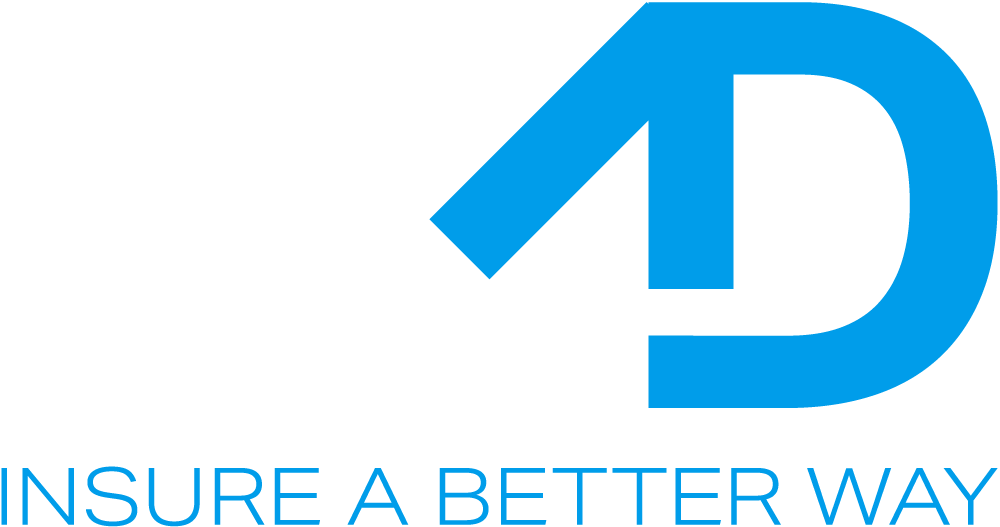
There is a clear difference between a direct insurance broker and an intermediary that can significantly impact your insurance decisions. With the right knowledge, you can tailor your insurance solutions, ensuring that you have the most suitable coverage for your specific needs. Let’s talk about the roles of direct insurance brokers and intermediaries, comparing their advantages and how they can aid you in navigating the insurance market.
What is a Direct Insurance Broker, and How Does It Differ from an Intermediary?

An insurance broker serves as an advocate for clients, specialising in identifying and arranging appropriate insurance policies that cater to individual requirements. Unlike traditional insurance agents who represent specific insurance companies, brokers work with various insurers, allowing them to offer a broader array of insurance products. This flexibility enables brokers to provide personalised service, ensuring that clients receive tailored insurance solutions that align with their risk management strategies. The expertise of an experienced broker is invaluable, especially when navigating the complexities of insurance needs, as they can advise clients on the best policies suited for their circumstances.
Intermediaries in the insurance market act as the middlemen between clients and insurers. They play a crucial role in facilitating communication, negotiating terms, and arranging coverage on behalf of clients. While intermediaries may include brokers, they also encompass various other roles that can influence the insurance procurement process. Intermediaries often possess expert knowledge about the insurance landscape, which can help clients make informed decisions. However, the primary difference lies in the fact that brokers typically maintain a more independent stance, working directly for the client’s best interest, whereas some intermediaries might have allegiance to specific insurance providers.
The fundamental difference between a direct insurance broker and an intermediary is the nature of their relationship with clients and insurers. Direct brokers work directly with clients to understand their insurance needs and then negotiate with various insurance companies on their behalf, aiming to secure the best coverage possible. In contrast, intermediaries may represent a single insurance provider or a limited selection of companies, which may restrict the options available to clients. This distinction means that clients using a direct insurance broker often benefit from a more personalised experience, with brokers customising insurance policies to meet specific needs and preferences.
What Are the Advantages of Using a Direct Insurance Broker?
One of the primary advantages of engaging a direct insurance broker is the ability to obtain personalised insurance solutions tailored to your specific needs. Direct brokers take the time to understand the intricacies of your situation, allowing them to advise you on the best policies that align with your requirements. This personalised approach not only enhances your understanding of the available options but also provides peace of mind knowing that your insurance coverage is designed specifically for you.
Direct insurance brokers have access to various insurance companies, which gives clients a wider selection of insurance products. This access allows brokers to compare different insurance policies effectively, ensuring that you can choose from a comprehensive range of options. The ability to navigate the offerings of multiple insurers also means that clients can benefit from competitive premiums and coverage options, ultimately leading to better value for their insurance investments.
When you choose to work with a direct insurance broker , you gain access to expert advice and ongoing support throughout the entire insurance process. From the initial consultation to policy renewal and claims assistance, brokers provide invaluable guidance. Their expertise allows them to negotiate premiums and tailor coverage options to better suit your evolving needs. Additionally, should you need to make a claim, having a knowledgeable broker by your side ensures that you navigate the claims process with confidence and clarity.
How Do Direct Insurance Brokers Compare to Traditional Insurance Agents?

The distinction between a broker and an insurance agent is significant in understanding how these entities operate within the insurance market. While both play crucial roles in assisting clients with their insurance needs, a direct insurance broker works on behalf of the client, offering a wider variety of insurance products from multiple providers. In contrast, traditional insurance agents are typically tied to specific insurers and represent their interests. This key difference influences the scope of options available to clients, making brokers the preferable choice for those seeking comprehensive coverage tailored to their specific insurance needs.
While there are many advantages to using a direct insurance broker, it is also essential to consider potential drawbacks. On the positive side, brokers provide tailored solutions, access to various insurance companies, and expert support. However, some clients may find that broker fees can increase the overall cost of insurance. It is crucial to weigh these factors against the benefits of personalised service and broader access to insurance products to determine the best option for your unique situation.
Choosing a direct insurance broker over a traditional insurance agent can be particularly advantageous in scenarios involving complex insurance needs or when seeking specialised coverage. If you’re looking for tailored insurance solutions and the ability to compare policies from various insurers, a broker is often the right choice. Additionally, when dealing with high-value assets or unique risks, the expertise of a broker can significantly enhance your risk management strategy, ensuring you find the right coverage that meets your specific needs.
Which Type of Insurance is Best Suited for Clients Using Direct Insurance Brokers?
Direct insurance brokers can assist clients with various types of insurance policies, including personal, commercial, health, and speciality insurance. Whether you are seeking home, auto, business, or life insurance, brokers can help navigate the myriad of options available in the insurance market. By exploring different types of insurance policies, clients can ensure they find the most suitable coverage that aligns with their individual circumstances and risk profiles.
One of the most significant benefits of working with a direct insurance broker is the ability to customise coverage to meet specific needs. Brokers can tailor policies based on factors such as lifestyle, business operations, or health conditions, ensuring that the coverage you receive is both adequate and appropriate. This customisation process involves a thorough assessment of your insurance needs and the identification of potential risks, allowing for a more comprehensive approach to risk management.
Finding the right insurance provider can be a daunting task, given the multitude of options available today. A direct insurance broker can simplify this process by leveraging their expertise and relationships with various insurers. Brokers can help you evaluate insurance companies based on their reliability, customer service, and claims handling processes, ensuring you select a reputable provider that aligns with your expectations. This guidance is especially beneficial when you have complex insurance needs that require a more nuanced understanding of the insurance landscape.
Conclusion
With so many options available, it’s essential to choose the right broker to meet your specific needs. Whether you prefer the convenience of direct insurance or the personalised service of an intermediary, understanding the differences between the two can help you make an informed decision. Remember, your insurance policy is a crucial financial tool. By working with a reputable broker, you can ensure that you have the right coverage at the best price and with the support you need.
Frequently Asked Questions:
What is the difference between a direct insurance broker and an intermediary?
The main difference between an insurance broker vs. a direct insurance broker is that a direct insurance broker sells policies directly to consumers, while intermediaries act as go-betweens for clients and insurance companies. A direct insurance broker can provide a wide range of insurance options without the need for intermediary involvement.
How can I find a reputable direct insurance broker?
To find a reputable direct insurance broker, you can start by checking their qualifications and experience in the industry. Look for brokers with at least 40 years of experience, read customer reviews, and ensure they are registered with ASIC to ensure they meet professional standards.
What should I consider when choosing a direct insurance broker?
When choosing a direct insurance broker, consider their detailed knowledge of different products, their ability to provide professional advice tailored to your needs, and their reputation in the market. This will help you secure a policy for your needs that offers adequate coverage.
Can a direct insurance broker assist with claims related to natural disasters?
Yes, a direct insurance broker can assist with claims related to natural disasters. They have the experience and knowledge to guide you through the claims process and ensure you receive the appropriate compensation as per your policy.
What’s the difference between an insurance advisor and a direct insurance broker?
While both an insurance advisor and a direct insurance broker provide guidance on insurance options, an insurance advisor typically offers professional advice and helps clients navigate their choices, whereas a direct insurance broker sells policies directly and may not provide comprehensive advisory services.
How does a direct insurance broker determine my insurance payment?
A direct insurance broker determines your insurance payment based on various factors, including your risk profile, the type of coverage you need, and the specifics of the policy you are interested in. They will assess these factors to provide you with an accurate quote.
Are there any benefits to using a direct insurance broker?
Yes, there are several benefits to using a direct insurance broker, including the ability to compare different products in the market to find the best policy for your needs, potentially lower premiums, and simplified communication as you deal directly with the broker.
What is a product disclosure statement, and why is it important when dealing with a direct insurance broker?
A product disclosure statement (PDS) is a document that outlines the details of an insurance policy, including coverage, exclusions, and costs. It is important as it helps you understand what you are buying and ensures transparency when dealing with a direct insurance broker.
How does a direct insurance broker provide personalised service?
A direct insurance broker provides personalised service by taking the time to understand your unique needs and circumstances, allowing them to recommend the most suitable insurance options. This tailored approach helps clients feel confident in their choices and ensures they are adequately insured.





